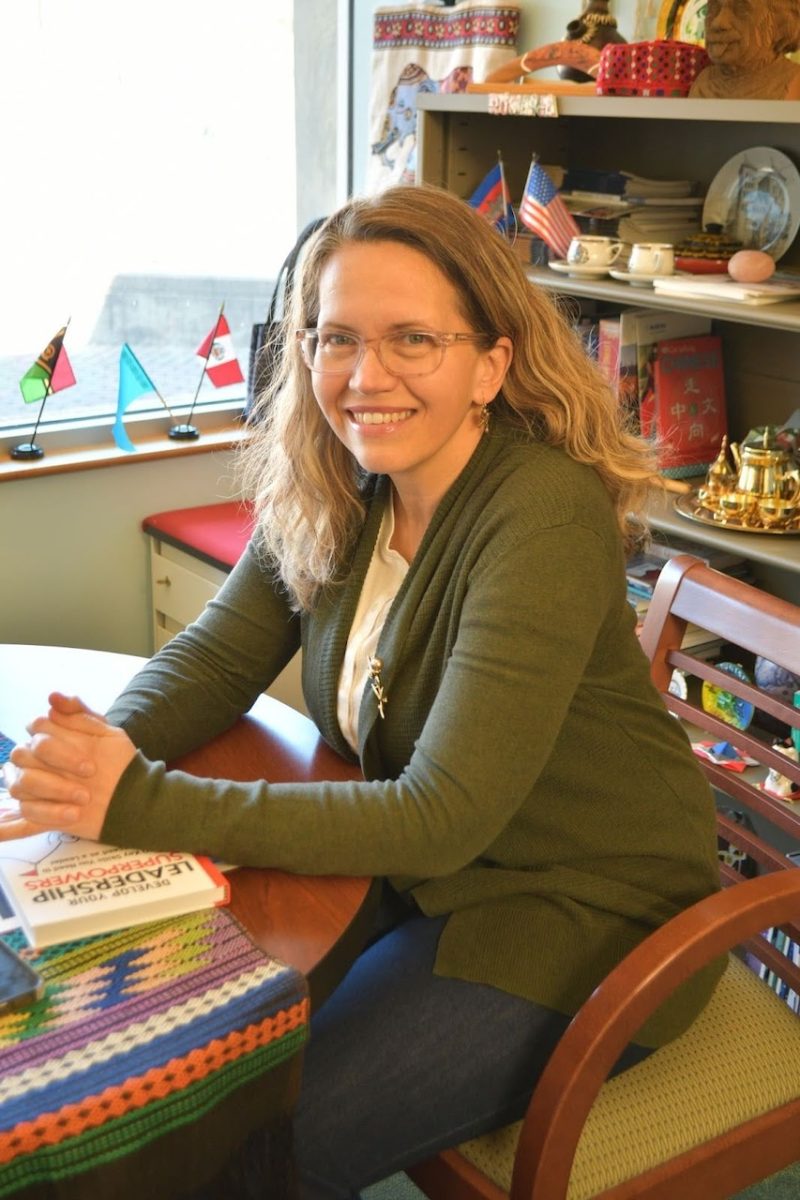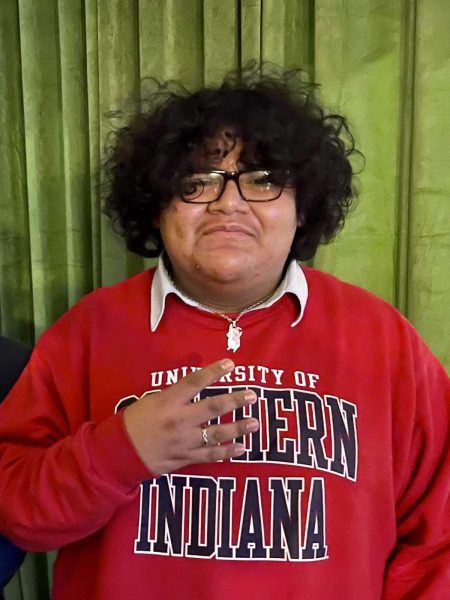Emilija Zlatkovska has been a fixture on campus since 2013. Her first role at the University of Southern Indiana was as the director of the Intensive English Program, in addition to serving as an affiliate assistant professor of English.
As director of this program, she ran the day-to-day operations of helping students learn English as a second language. Building the curriculum, Zlatkovska taught absolute beginner to low intermediate courses, setting realistic goals for her students.
In 2020 Zlatkovska transitioned to the position of executive director of the Center of International Programs. In this role, she would help international students with their needs while at USI. However, teaching English to students is something that Zlatkovska holds dear, and still practices alongside her important executive role at the university.
Among her many duties, however, lies a special one for a select few students on campus.
The International Programs and Services under the CIP host the Women’s Global Leadership Retreat, a retreat in New Harmony, Indiana. This retreat helps foreign and international students as well as students who have studied abroad, to acquire, focus, and develop new skills essential to becoming leaders of the future.
Additionally, it helps students with cultural adjustments and ways to contribute to the university. This retreat was set for March 21-22 at the Barn Abbey in New Harmony. This event has been a recurring event at USI since 2014, except for 2020, during the COVID-19 pandemic.
Zlatkovska said that Heidi M. Gregori-Gahan, the first director of the CIP, started the retreat. When Gregori-Gahan left the position in 2020, she became the Associate Provost Emerita and the International Advancement Specialist at the Provost’s Office.
When asked about taking the reins from Gregori-Gahan, Zlatkovska said, “This was her baby, her passion and so I just continue in her steps to kind of continue empowering women and help them be better connected, learn how to use the skills they have.”
She continued by discussing the theme of this year’s retreat: Unlocking your leadership superpowers.
She said that the theme is about, “How to unlock your superpowers and focusing on language, focusing on culture, focusing on intercultural communication, dealing with conflict and how to use what you have and who you are as a strength rather than as a disadvantage.”
The participants undergo a series of leadership skill workshops, reflections, sharing, and team building. Along with this, they get the chance to discuss these topics with Shelly B. Blunt, provost of the university.
Zlatkovska described the process as: “Using who they are, using their strengths and what they know and strengths and skills, personality, how they can navigate employment or communication in a different setting, in a different culture, in a different country and how they can use that as a strength rather as a drawback.”
“Our office provides services for all international students, as well as domestic students who want to study abroad, right?” said Zlatkovska. “So the mission is to focus on the global world, or intercultural skills and internet campus internationalization. The goal is to help our campus in the Evansville community see that there is more of the world beyond Evansville.”
One method that Zlatkovska and the CIP utilize is setting up different experiences for students to take advantage of. A notable experience is the Food Expo that took place on Feb. 14, where students were able to show their different cultures through food. Another example would be the culture nights hosted once a month. These allow people of different communities to gather around as one big community on campus.
“Helping people find that value, you know?” she said. “Just because you’re labeled one way or another. As times change and more attributes are added, just finding that superpower you know, finding your niche, finding your strengths and reaching them in the world like that’s what we want,” she said, “That’s what we’re trying to do and not just with the leadership, but trying to find that in every little moment of interaction, trying to help students see the value of why they’re here, because of who they are.”


